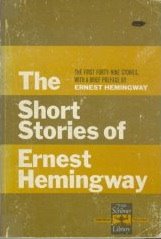 Most of the books I read I like. It's hard because I've been recommended so many books and I'm always on the lookout for a new read that I'm usually excited by whatever book ends up in my lap. Sure, occasionally I'll cross a book that's bad, terrible bad, curl up in a ball and cry for your time back bad, but those are so few and far between that it's almost worth it. Or I just stop reading and donate it.
Most of the books I read I like. It's hard because I've been recommended so many books and I'm always on the lookout for a new read that I'm usually excited by whatever book ends up in my lap. Sure, occasionally I'll cross a book that's bad, terrible bad, curl up in a ball and cry for your time back bad, but those are so few and far between that it's almost worth it. Or I just stop reading and donate it.Siddhartha was a fantastic book. Big surprise, right?! Fantastic, though, for reasons I rarely see in liking a story. Every once in a while there is a book that you read, or a story you hear or see, that changes your outlook on a situation. Siddhartha, here and now, is that book for me. It was simply amazing. Perfectly clear and concise, the story rolled along. Reading it was like sitting and listening to the ocean.
Years ago I read The Alchemist, and like many other readers was profoundly affected by its messages. Without sounding hokey, the book was really insightful, and very provocative with its outlook that I've still not forgotten how it affected me and still adopt a philosophy very closely with its message. I've been meaning to reread it, but haven't had the chance.
A friend recommended Siddhartha to me last year, so I finally got around to reading it. Since The Alchemist, I have not been affected or found a book so spiritually inspirational. Its themes are perfectly in line with what bounces around in my small head most of the time, though much more clear and interesting, and it provides a perfect example of a life that is altogether human.
Siddhartha was the name of the real Buddha, but Hesse's Siddhartha is purely fictional. His life mirrors the Buddha's, but he takes his own path. The Siddhartha in the novel starts out as a member of the upper class that leaves the wealth of his family for a life of spiritual study with the shramanas, which are a band of traveling priests. He winds up leaving the shramanas with his friend Govinda to follow and meet the Buddha, a being he finds supremely spiritual and calls a saint. Siddhartha leaves Govinda behind because he realizes that he cannot find enlightenment in the Buddha's teachings, that his enlightenment path is different. He winds up becoming a wealthy businessman so he can learn the art of love from Kamala, and becomes sidetracked by the "child people", people wrapped up in their own life. Finally, he tires of this life and meets a ferryman where he ultimately finds enlightenment, but his path is not an easy one.
What I find most inspiring in Hesse's beautifully crafted story is its realism. Hesse does not make Siddhartha some mythical being, he makes him human. Siddhartha suffers through things I've suffered through, and he suffers through them again and again. Hesse shows life as a recurring cycle of events, something I find to be very true, but with every recurrence, Siddhartha grows a little more until, ultimately, he finds enlightenment. If I haven't said so, it's great, and sad, and yes, enlightening.
The simplicity of the cover is only half as simple as the inspiring story inside. If only I could do the lotus position!


No comments:
Post a Comment